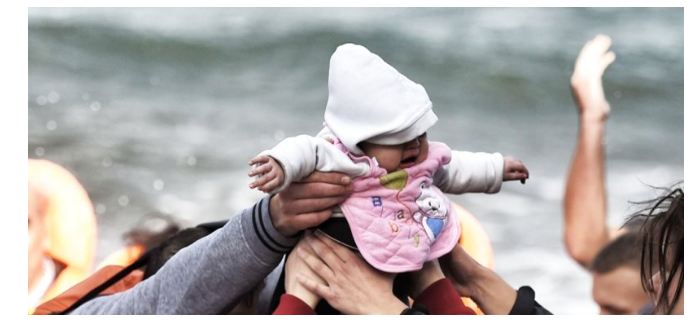A European agency on Friday revealed the ongoing difficult conditions and rights violations faced by migrants in detention and reception centers at EU borders.
A new report released by the EU Agency for Fundamental Rights (FRA) said various sources, including non-governmental organizations and media, has reported violent pushbacks in Croatia, the Greek Cypriot administration, France, Greece, Hungary, Malta, Romania, Serbia and Slovenia during June 1 to 30th.
“According to preliminary data from the European Border and Coast Guard Agency (Frontex), over 61,000 people crossed the EU’s external borders in an irregular manner in the first 6 months of 2021, 59% more than the total in the entire year of 2020,” the report said.
In Greece, according to the Ministry of Migration and Asylum, the arrivals in the first 5 months of 2021 dropped by 68% compared with the same period in 2020.
The report said that asylum-seeking children, unaccompanied or with families, were placed in detention in Bulgaria, Croatia, the Greek Cypriot administration, France, Greece and Poland.
“In Italy, problems were reported concerning the placement of migrants on vessels (known as quarantine vessels) for the mandatory period of quarantine after they had been rescued at sea, instead of disembarking them at ports,” it said.
FRA also highlighted that in Malta, delays in search and rescue operations at sea, alleged incidents of pushbacks at sea, widespread use of immigration detention and alleged episodes of violence in pre-removal detention centers persisted.
In the Greek Cypriot administration, “reception facilities remain overcrowded, and de facto deprivation of liberty is one of the issues of concern highlighted by the Council of Europe (CoE) Commissioner for Human Rights,” it added.
The report stressed that Greece had designated Turkey as a safe third country for asylum applicants from Afghanistan, Bangladesh, Pakistan, Somalia and Syria.
“Despite the decrease in arrivals, the reception conditions in many facilities remain poor, and the situation of vulnerable persons has been exacerbated following the discontinuation of alternative accommodation schemes. The access of recognized refugees to basic services is not guaranteed,” it said.

















